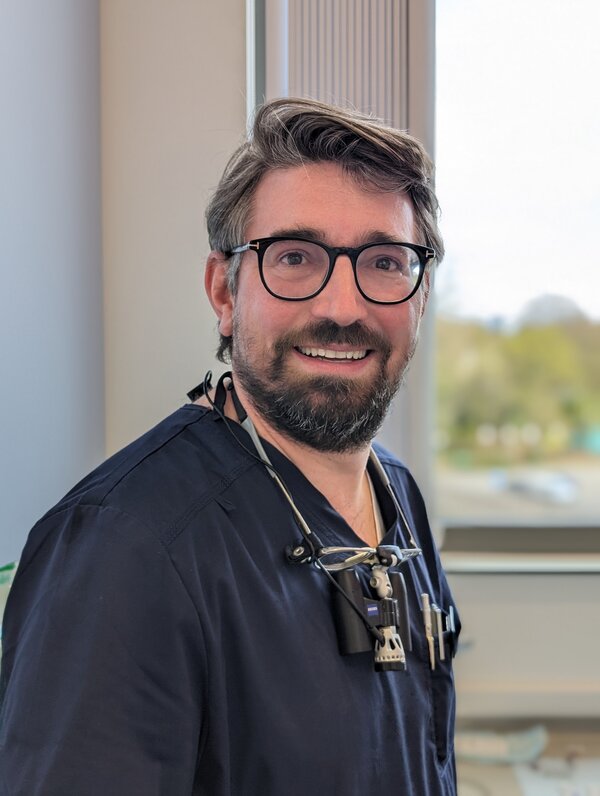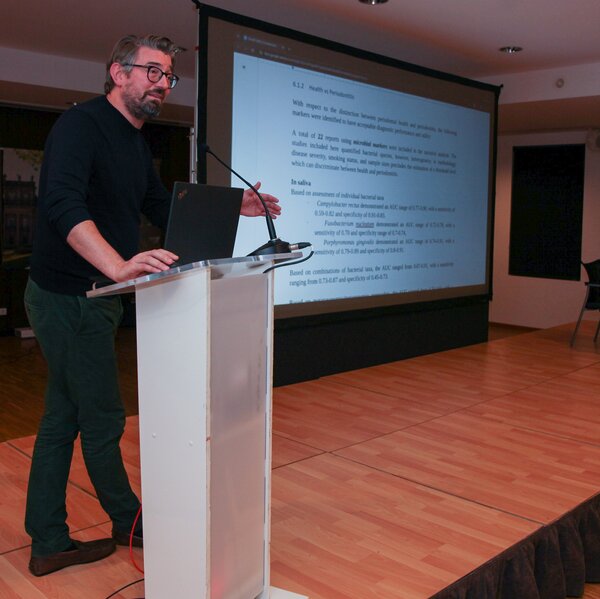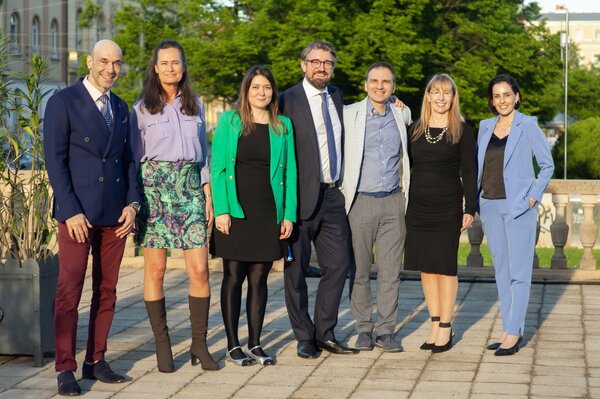Publications Hub, Classification & Guidelines, Article,
EFP president Moritz Kebschull assesses the impact of the federation’s work
24 March 2025
As his year as EFP president draws to a close, Moritz Kebschull reflects on the global challenges in oral health, how the EFP is responding to them, and on the importance of its clinical practice guidelines and work with its member societies and other organizations.

How would you describe the current state of oral health?
Oral health is a hot topic right now. It is characterized by very robust interest not only from within dentistry and medicine, but also from patients, institutional stakeholders, businesses, and politicians that, in part, is driving significant advancements.
On the other hand, we still face massive challenges. Although breakthroughs in preventive care, early diagnosis, and treatment have led to better outcomes in many areas, oral diseases still impact nearly half the world’s population. This surpasses the burden of most common non-communicable diseases.
In addition, access to care remains a significant issue, and lifestyle factors such as poor diet and smoking still contribute to oral-health problems.
What progress has been made in recent years and what needs to be done?
A significant milestone for oral health was the 2024 WHO Global Oral Health Conference in Bangkok. The event highlighted the need to integrate oral health into broader healthcare systems, recognizing its essential role in overall health.
Looking ahead, addressing disparities in access to oral healthcare across different countries and healthcare systems and promoting prevention as a primary anchor should be central to global oral-health strategies.
Dental professionals must continue to advocate for comprehensive oral-health education, ensuring that it becomes a core element of general health awareness.

What have been the latest EFP initiatives on oral health?
The EFP has been actively working to advance oral health through various key initiatives. These include initiatives targeted at professionals as well as projects aiming to drive health policy.
Over the last few years, the EFP has developed and rolled out S3-level clinical practice guidelines (CPGs) for the treatment of periodontitis and peri-implant diseases. These will be complemented this year and in 2026 by two additional guidelines—for gingival diseases and for periodontal plastic surgery.
We are actively working on further improving these developments from a methodological standpoint—further strengthening the role of patients in these guidelines, for example. To this end, we have just run an international workshop with our national member societies from Spain and Italy that critically assessed patient-reported outcomes in soft-tissue surgery, helping to further refine the structure of the forthcoming guideline development process.
We also push for the implementation and adoption of the CPGs in all our 43 member nations, and beyond. For example, we recently launched a new set of infographics to facilitate the interpretation and application of the EFP Clinical Practice Guideline for the Treatment of Patients with Stage IV Periodontitis.
What about workshops and congresses?
These guidelines have been complemented by the second European consensus workshop on education in periodontology, which resulted in a report published in the Journal of Clinical Periodontology that will continue to shape the future of periodontal education, and the 20th European Workshop on Periodontology, titled Periodontal diagnosis: contemporary and emerging technologies, which tackled distinct aspects of periodontal diagnosis and represented the EFP’s commitment to foreseeing and integrating innovation that benefits practitioners and, most importantly, patients.
In Vienna in May this year, we will host EuroPerio11, the world’s leading congress in periodontology and implant dentistry. The congress will feature a rich and varied scientific programme, including live surgeries and interactive sessions with more than 150 top speakers from around the globe, all of whom are highly respected leaders in their fields.
Beyond working with oral-health professionals, what initiatives has the EFP launched to raise wider awareness and promote changes in policy?
On the policy level, we launched several important initiatives that are not predominantly targeted at professionals, but rather at politicians, journalists, institutional stakeholders—and patients. In 2024, Economist Impact, part of the Economist Group, published the report Time to Put Your Money Where Your Mouth Is: Addressing Inequalities in Oral Health". This white paper, commissioned by the EFP with support from our partner Haleon, underscores the need for increased investment in preventive oral-health measures and emphasizes the importance of aligning policy, public health, payment systems, and clinical practice.
We also introduced The Journey to a Healthy Smile campaign, which aims to educate patients on the importance of gum health and the prevention of gum disease. This initiative provides oral-health professionals with essential resources to help convey these messages effectively.

What collaborations or partnerships is the EFP pursuing to tackle global oral-health challenges?
The EFP is actively pursuing collaborations and partnerships to address global oral-health challenges.
One of our most significant political collaborations is with the Platform for Better Oral Health in Europe, of which we have been an active board member since 2023. This partnership focuses on promoting oral health as a core component of general health, influencing policy, and advocating for preventive measures across Europe.
We also recognize the importance of our partnership with our commercial partners, whose support enables us to drive important initiatives, enhance research, and develop campaigns that raise awareness among patients.
Finally, we are committed to strengthening our relationships with national societies of periodontology and other global associations to enhance the exchange of knowledge and best practices, fostering international collaboration on education, research, and the implementation of clinical guidelines.
Biography
Moritz Kebschull, president of the EFP 2024-25, holds the Chair of Restorative Dentistry at the University of Birmingham in the UK and an adjunct professorship at Columbia University in New York, USA. He co-chairs the annual EFP workshops and drives the development of high-quality clinical practice guidelines in periodontology and other dental disciplines.
At EuroPerio11 in Vienna in May, he will give a presentation titled 'The oral & gut metatranscriptomes' in the EFP-AAP joint session Bottoms Up! What can we learn from gut microbiome research to benefit periodontitis patients.




